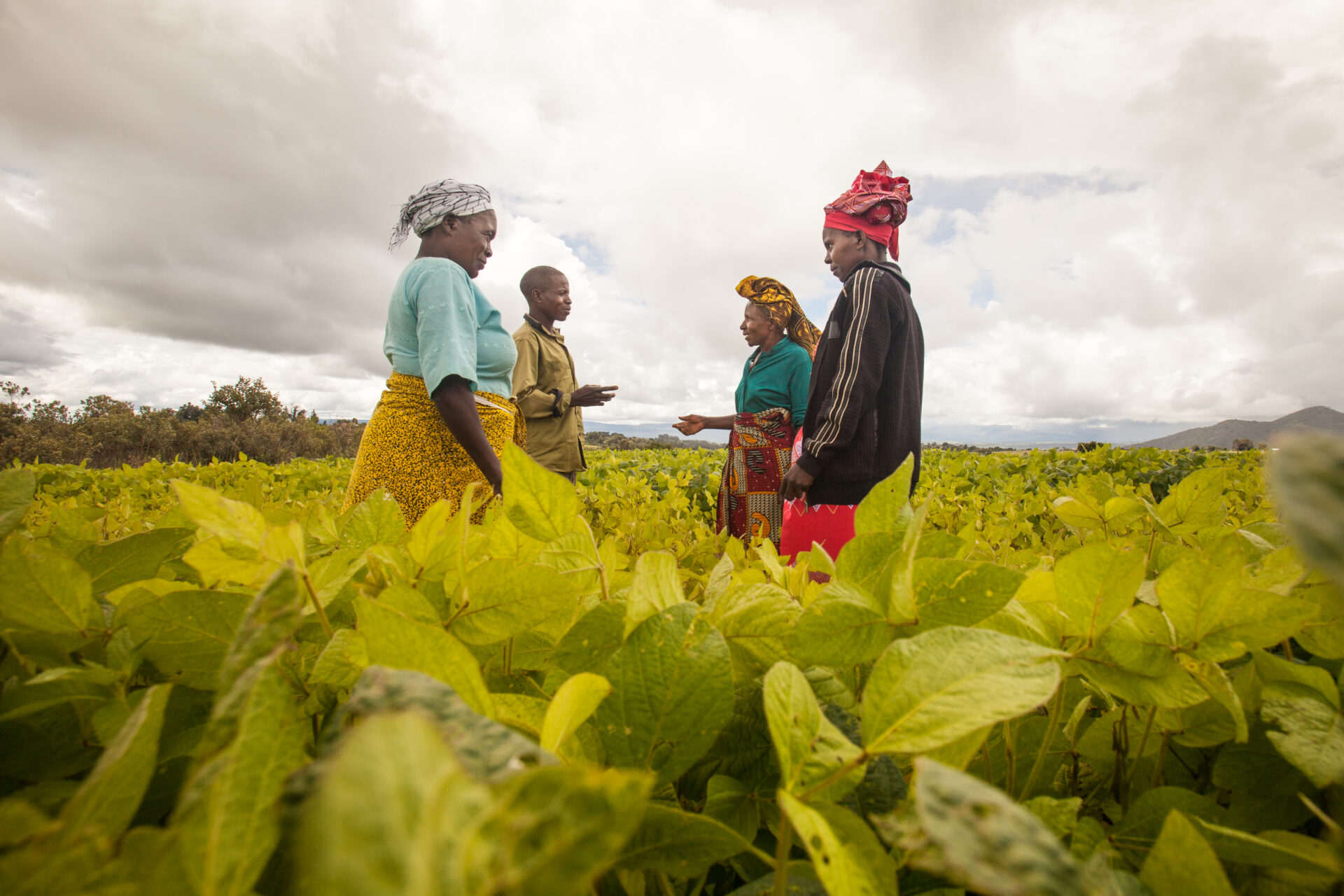Addressing the gap on gender equality and social inclusion in climate adaptation finance
/
Authored by CLARE Admin and Blanche Butera
Since its launch in 2023, ECONOGENESIS has moved the global climate conversation forward on climate finance, including the importance of enabling more adaptation finance that also addresses gender equality and social inclusion. Over the past year, the project team has directly contributed to a flagship international climate publication – the United Nations Environment Programme Adaptation Gap Report (AGR) – and the headline results from this work were included in the first Global Stocktake, providing new estimates of adaptation finance needs for developing countries. The team’s work for the AGR also undertook and reported on an analysis of gender equality and social inclusion in adaptation finance.
The challenge
While there are growing numbers of studies of the economic costs of climate change, there remains an evidence gap on the costs and benefits of adaptation. Furthermore, while the impacts of climate change are disproportionately felt by the poor, women, girls, and marginalized populations, there is a gap in knowledge of how the economic costs of climate change – and thus adaptation needs – vary by gender or social group. Supported under the CLimate Adaptation and REsilience (CLARE) framework research programme, ECONOGENESIS aims to address these knowledge gaps, advancing analysis of the economics of adaptation, strengthening gender equality and inclusion in adaptation planning and programming, and generating new knowledge and approaches on the financing of adaptation.
Impact on the Global Stocktake
The work of the ECONOGENESIS team – as reported in the AGR and in the supporting Adaptation Finance Gap Update 2023 – was referenced in the first-ever Global Stocktake, through which Parties to the United Nations Framework Convention on Climate Change (UNFCCC) assess collective progress towards the goals of the Paris Agreement. Drawing on this CLARE-supported work, the international community acknowledged that adaptation investment needs are high for developing countries, and that there is an existing finance gap, which if not filled will lead to costly loss and damage.
Influence on the 2023 Adaptation Gap Report
The ECONOGENESIS contributions to the 2023 Adaptation Gap Report set out new estimates of the global adaptation finance gap. The ECONOGENESIS team supported work that estimated the costs of adaptation for developing countries to be between 215 and 387 billion USD per year until 2030 – 10 to 18 times more than the annual flows of current international public finance. This work updated and refined earlier estimates of the adaptation gap, finding the anticipated costs of adaptation to be higher than previously identified.
ECONOGENESIS also produced information on how countries’ Nationally Determined Contributions (NDCs) and National Adaptation Plans (NAPs) under the Paris Agreement commit to addressing gender equality and social inclusion. Of those NDCs and NAPs that include financial needs, only 2% of overall adaptation costs were allocated to tackling gender and social inequalities.
Only 20% of these now include dedicated costs for gender aspects, and only one country’s document is considered gender-responsive, with the rest gender-specific or -integrative. Among both finance flows and finance needs, other aspects of social inclusion (e.g. Indigeneity, ethnicity, disability, age or migration status) receive little attention. ECONOGENESIS also found that, of the international public finance programmes for adaptation that are tagged for gender equality and inclusion, only 2 per cent is marked as gender-responsive and a further 25% as gender-specific or gender integrative.
Next steps
In its first year, ECONOGENESIS has informed the global climate conversation on climate finance and helped move gender equality and social inclusion issues up the agenda. The project is continuing this work as part of the 2024 Adaptation Gap Report. This report is investigating the adaptation finance gap in more detail, as well as initiatives to close it, and also assessing how different financing arrangements affect gender equality and social dimensions and thus climate justice.
By working closely with researchers, development planners, economists, climate fund /climate finance staff, civil society and private sector partners in Rwanda, Nepal and Tanzania (Zanzibar), ECONOGENESIS is also strengthening capacities of key actors on the ground to use these analyses to improve adaptation financing and planning for the most vulnerable. Through its work on capacity strengthening and transfer of knowledge, whereby partners in the primary country of research (Rwanda) share approaches and methods with peers in Nepal and Zanzibar, ECONOGENESIS demonstrates the potential of South-South cooperation. The project also aims to identify bankable adaptation projects with potential to advance gender equality and inclusion.
Categories
Countries
CLARE Pillars
CLARE Themes
CLARE Topics


